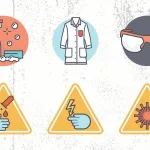At first, I thought it was nothing. Just a flutter—like a shy little fish brushing past in my belly. I’ve seen the movies, heard the stories: the glow, the random cravings, even the terrifying heartburn. But nobody talks enough about the endless questions that bubble up, especially once you’re in the second trimester. I’m serious, it’s like opening a door and suddenly you’re the ringleader of a circus called “Should I Be Worried?”
With every little twinge, Google becomes your midnight best friend and absolute worst enemy. You know you need to talk to your doctor, but where do you even begin? Which questions are smart to ask, and which ones just sound… well, totally paranoid? And can we talk honestly for a second? Because expecting an expecting mom to ‘just know’ all this stuff isn’t fair. The second trimester isn’t just about figuring out if you like pickles on ice cream (no judgment!), it’s about empowering yourself to ask the right questions and feel confident about your care.
So, let’s cut through the noise together. Whether this is your first baby, or you already know the drill (and maybe even the hospital vending machine hours), I’m here to help you get the answers you truly need to make your second trimester a little bit less overwhelming, a little bit more incredible, and a lot more yours.
Why Second Trimester Questions Matter (And Why You Deserve Answers)
The fact is, the second trimester—weeks 13 through 27, if you’re counting—can feel kind of like the ‘invisible middle child’ of pregnancy. The morning sickness of the first trimester might ease up (hopefully!), but the finish line is still nowhere in sight. Your body is changing in ways that somehow feel both magical and completely bizarre. Suddenly, everything matters: every ache, every weird craving, even the way you sleep.
Why bombard your doctor with questions? Because information is power, and a good question—asked at the right time—can change everything. Proactively talking with your OB/GYN helps catch potential issues early, so you can enjoy the good stuff (like that first unmistakable kick!) with far less stress. Yes, there’s a world of difference between “Should I be worried?” and “How can I best take care of myself and my baby right now?”
If you ever wondered, does obgyn do ultrasound every visit or “What are the best questions to ask at 20 weeks?”—spoiler alert—you’re not alone, and you should never feel silly for asking. In fact, women who speak up about their questions, fears, and hopes have been shown to get not just more answers but better care (according to a study on patient-provider communication).
What to Expect in the Second Trimester (And What to Ask About!)
Let’s paint a quick picture: it’s your second trimester check-in, and you’re running through a mental list of everything you’ve felt, googled, and worried about since your last appointment. Take a deep breath—here are some things you can totally ask about (and you absolutely should):
Body Changes, Milestones, and That 20-Week Anatomy Scan
This is the window where a lot of big changes show up—sometimes overnight.
- Are my symptoms normal? (What about that weird pulling in my belly button…?)
- Should I be gaining weight at this rate?
- How often should I expect to feel fetal movement right now?
- Does obgyn do ultrasound at most visits or is it only special appointments?
Let’s zoom in on the anatomy scan, which usually happens right at 20 weeks. This is the biggie—probably the longest ultrasound you’ll have, and honestly, it can feel both thrilling and nerve-wracking. This is where you find out whether everything’s developing as it should. Wondering what questions to ask ob at 20 weeks? Here’s a handy starting point:
- Is my baby’s growth on track for where we expect?
- Are there any signs of concern with the organs or placenta?
- Is my amniotic fluid normal?
- Are there any reasons to consider follow-up scans?
If you’re the organized type, or even if you’re not, jotting down a few questions before your appointment can help you remember in the moment—because, let’s be honest, baby brain is so real.
How to Get the Most Out of Your Anatomy Scan
This scan is more than just cute baby pictures (though yes, you’ll probably go home with more than a few fridge-worthy printouts). It’s a check-up for heart, brain, spine, and limbs—plus a chance to catch rare problems early. If something shows up, it doesn’t mean disaster; it just means there’s more to talk over. Your doctor might want to repeat scans, send you to a specialist, or give you new advice about care (and that’s a good time for follow-up questions!).
Your Health, Everyday Symptoms, and Honest Conversations
The second trimester, for many, brings a relief from the more dramatic symptoms of early pregnancy. (Praise be if nausea has finally faded!) But now you might start asking yourself: “Is that twinge just stretching ligaments, or is it something I should tell my doctor about?” This is when the ‘is this normal?’ questions really ramp up—and you know what? They matter. Every body is so different, and what’s normal for one might be weird for another.
Here’s a table for at-a-glance reference—a lifesaver for the “Wait, should I call?” moments!
| Symptom | Is it Typical? | Call Doctor? |
|---|---|---|
| Mild back pain | Yes | No |
| Frequent urination | Yes | No |
| Severe or persistent abdominal pain | No | Yes |
| Heavy bleeding | No | Yes |
| Sudden swelling in face/hands | No | Yes |
Some questions you might consider asking your OB during second trimester visits:
- Is it safe for me to keep up with my workout routine?
- Are there foods or ingredients I should be avoiding now?
- Should I adjust my prenatal vitamins or add anything new?
- How should I track signs of gestational diabetes?
- Do I need to worry about sleeping positions yet?
Also, never feel embarrassed to ask about the little awkward things: constipation, weird dreams, skin changes, or even sex—seriously, your OB has heard it all and will always prefer an awkward question over a silent concern. That’s how trust builds, and it’s absolutely priceless.
Fetal Development & Screening: Understanding the Milestones
By the time you hit your second trimester, your baby is going through a growth spurt rivaling any teenager (okay, not quite, but it feels that way sometimes). The infamous 20-week ultrasound is a major highlight—and a great time to pepper your doctor with questions to ask ob at 20 weeks.
Here are a few things you can ask for peace of mind and curiosity’s sake:
- How does my baby’s development compare to the average?
- Are all the organs, bones, and limbs looking good?
- Is the placenta in a safe position?
- Should I be watching for any symptoms at home?
This is also prime time for other screenings—like blood tests for genetic conditions, or the gestational diabetes screening that often comes around week 24-28. Nervous? Totally normal. Ask:
- Why is this test necessary?
- What happens if the results are outside the normal range?
- Will I need more frequent ultrasounds?
Remember, a good doctor will explain not just the what, but the why. You don’t need a medical degree, just the peace of mind that comes from knowing what’s happening and how it fits into your bigger pregnancy picture.
Setting The Stage: Looking Toward Third Trimester
Wait, isn’t it too soon to think about third trimester stuff? Actually, now’s the perfect time to start prepping. Don’t be shy about asking your doctor questions to ask ob at 30 weeks or even questions to ask ob at 37 weeks—trust me, they won’t think you’re jumping the gun. Topics like birthing classes, what labor signs really look like, and whether you need any additional testing are all fair game.
- What appointments are coming up after 28 weeks?
- When do we start discussing my birth plan?
- Do I need to see any specialists before delivery?
- If I travel during the third trimester, is there anything extra I should know?
Some women (me included!) keep a jot-down list on their phone. It’s messy—filled with reminders like “ask about flu shot” and “do I really have to give up sushi?”—but it helps you stay on top of your game. No question is too small when it comes to your health and your baby’s.
Building Real Connection: Advocacy, Trust, and Transparency
I get it—asking questions can feel awkward. Doctors are busy, appointments move fast, and half the time you’re trying to remember what you even wanted to talk about once you finally get in that paper gown. But something magical happens when you treat appointments as a two-way conversation instead of just ticking boxes.
My friend Liz had a doctor who always ended visits with, “Anything you read online that freaked you out lately?”—and it made all the difference. She knew she was allowed to ask about headlines, stories from friends, or that random forum post she’d saved at 2am. Her appointments felt less like lectures and more like team huddles.
Here are some gentle ways to start those vital conversations, especially if you’re nervous:
- “I read something about vaccines during pregnancy—can you walk me through what I really need to know?”
- “Can you help me understand what would be a red flag symptom, versus something that’s probably okay?”
- “I want to feel confident and prepared—what would you want your own sister to be watching for in my shoes?”
And bring a partner or friend if that helps. Two sets of ears pick up more, and just having backup can help you feel less alone. If you ever feel brushed off—like your worries aren’t being taken seriously—don’t hesitate to get a second opinion. You deserve care that really listens.
Where to Find Trustworthy Information (Beyond the Exam Room)
Feel like the internet is a maze of contradicting answers? You’re not wrong. Not all sources are created equal. If your doctor mentions a guideline or resource, don’t be afraid to ask, “Where can I read more about that?” Good places to look are reputable medical organizations like the American College of Obstetricians and Gynecologists (ACOG) or Mayo Clinic’s prenatal care page; they keep info up-to-date and written for real people.
If you see sensational stories or scaremongering headlines, ask your provider or a trusted medical source to break them down. And remember: If a website is selling miracle cures, promising to predict your baby’s gender with a ring and a string, or encouraging you to skip doctor visits—run, don’t walk, the other way.
Conclusion: You, Your Baby, and the Power of Curiosity
Let’s be honest: pregnancy is messy, beautiful, hilarious, wild, and sometimes lonely. There’s no trophy for “best question asker,” but every worry you voice, and every answer you get, is one more brick in the foundation of confidence and trust you build with your doctor—and yourself. Whether you’re worried about the color of your discharge (normal!), convinced your craving for oranges means something profound, or just need to be told you’re doing a good job, you belong in the heart of this conversation.
So go ahead—bring a list, ask away, and remind yourself that what you feel is real and deserves to be heard. You’re not alone, not for one second. Every parent—the anxious, the curious, the bold, the shy—helps create a world where questions aren’t just allowed, they’re celebrated.
If you’ve got a burning question that just won’t leave your mind, or if you want to share how your second trimester went, please drop a comment or story below. We’re in this together, and your voice could be the one that helps someone else feel a little less lost in the whirlwind. Here’s to getting the answers—and the support—you deserve.

























Leave a Reply
You must be logged in to post a comment.